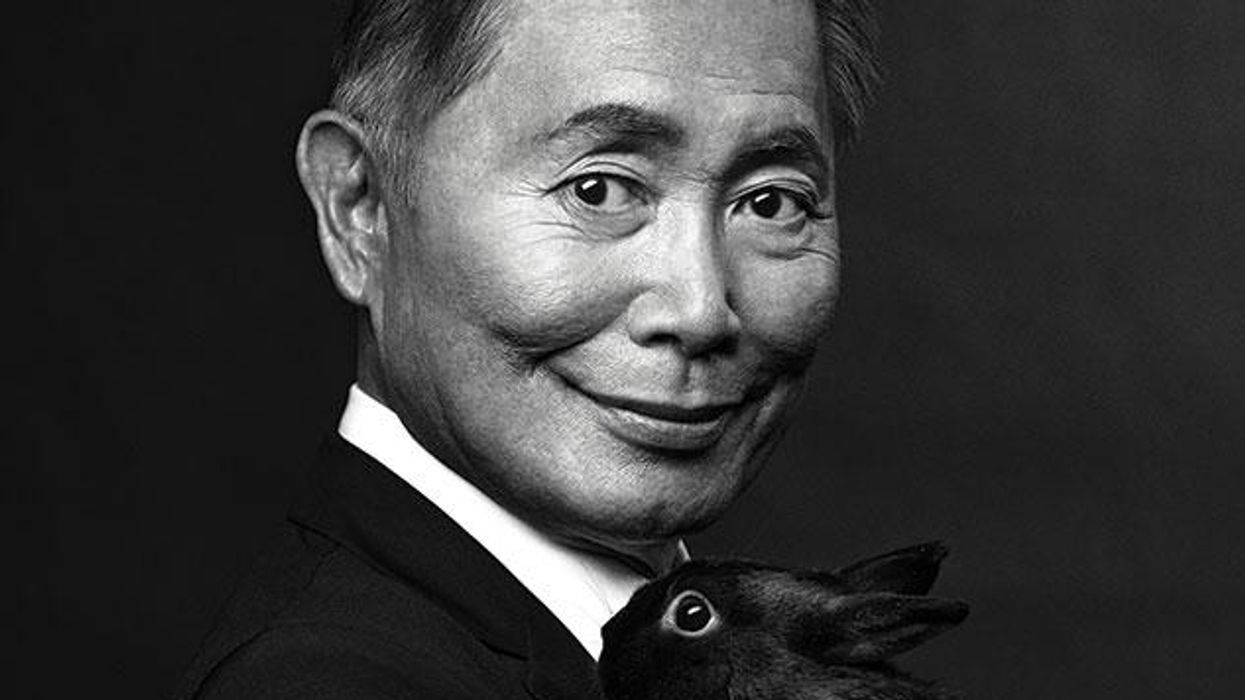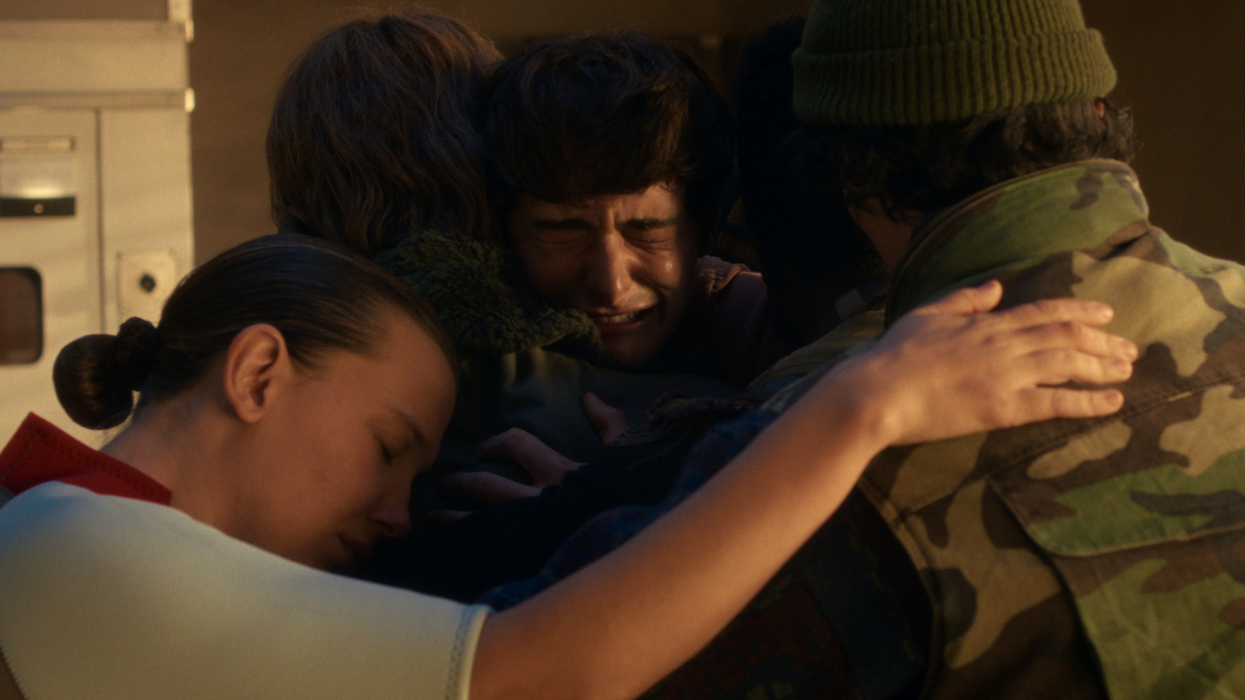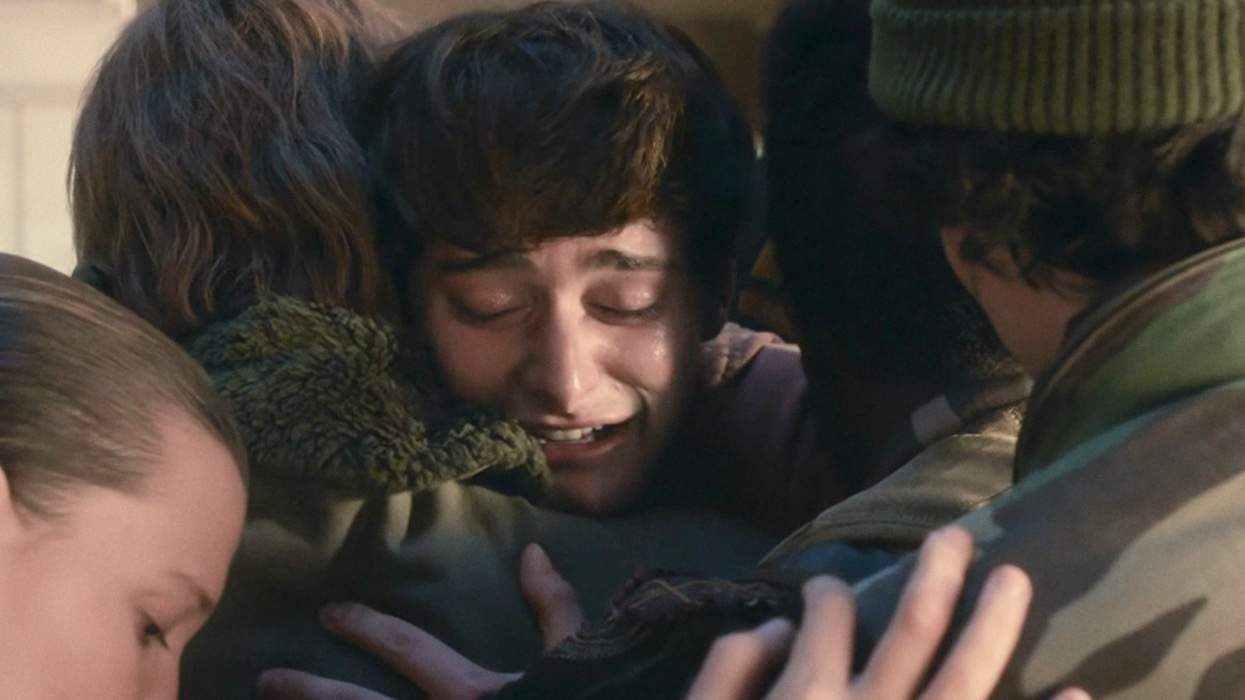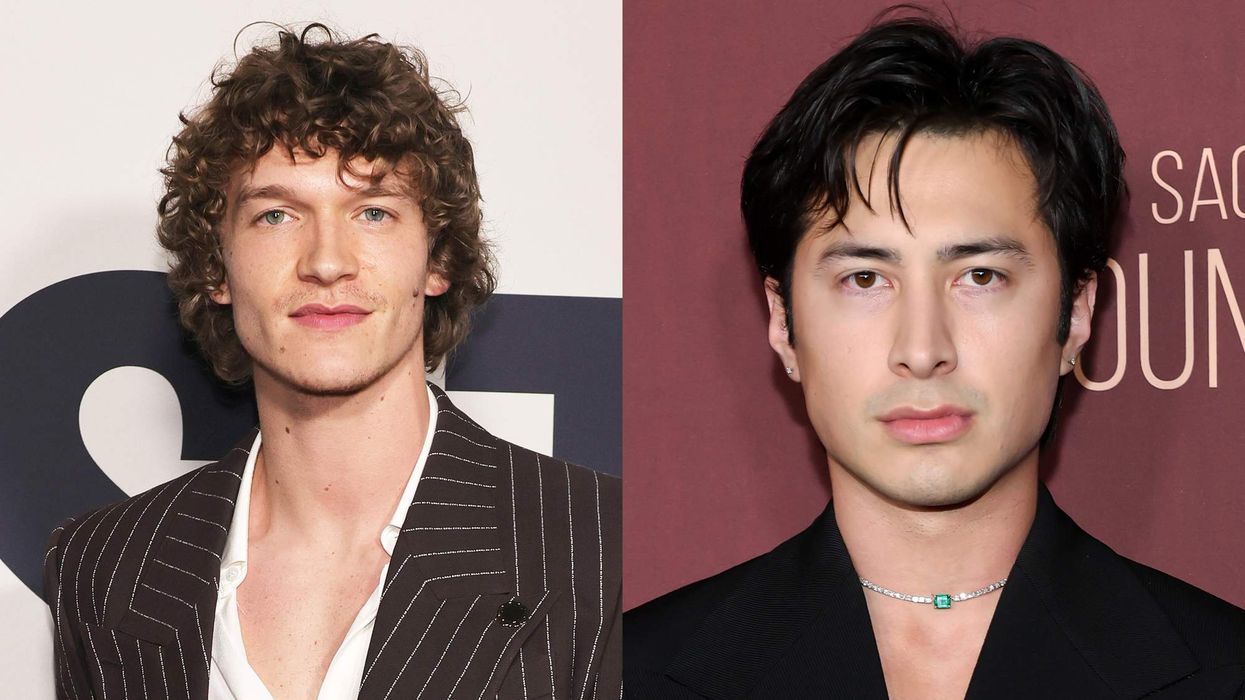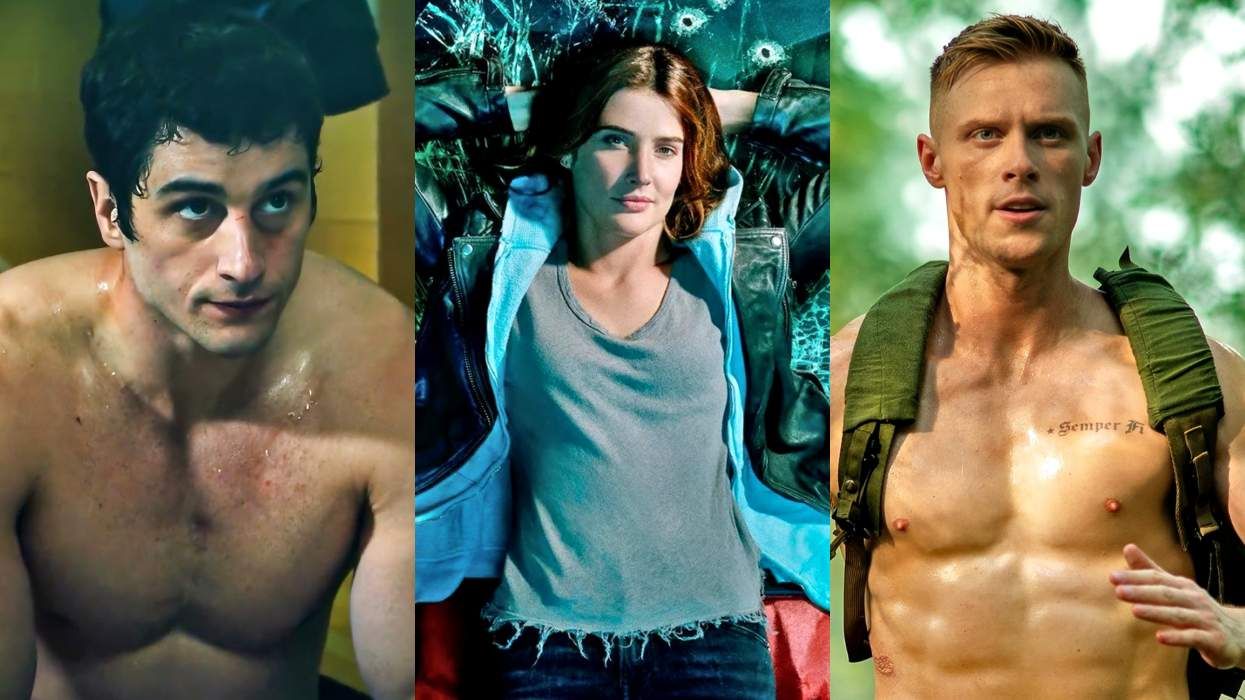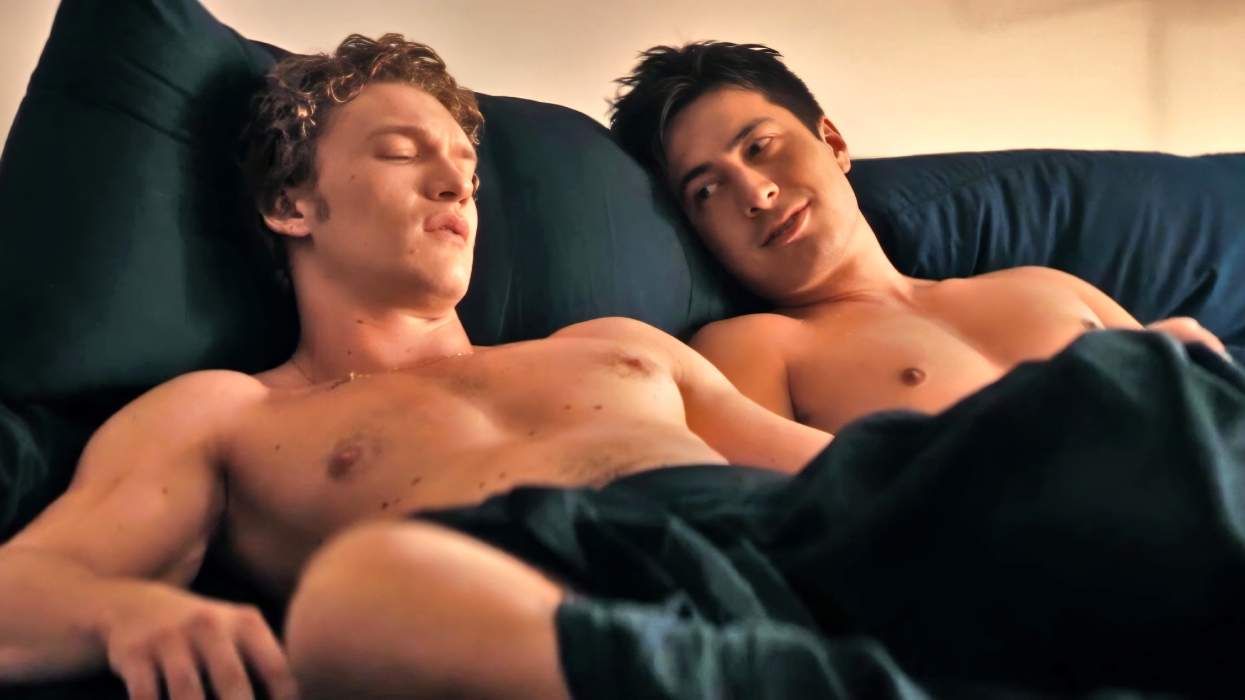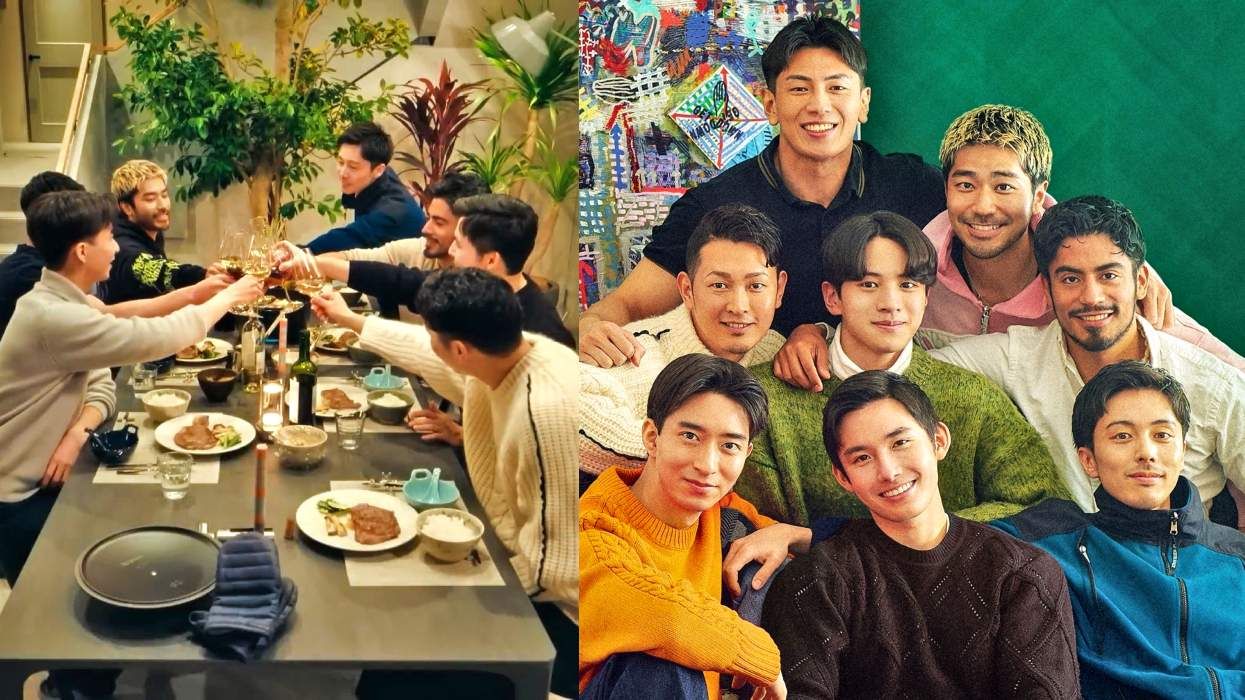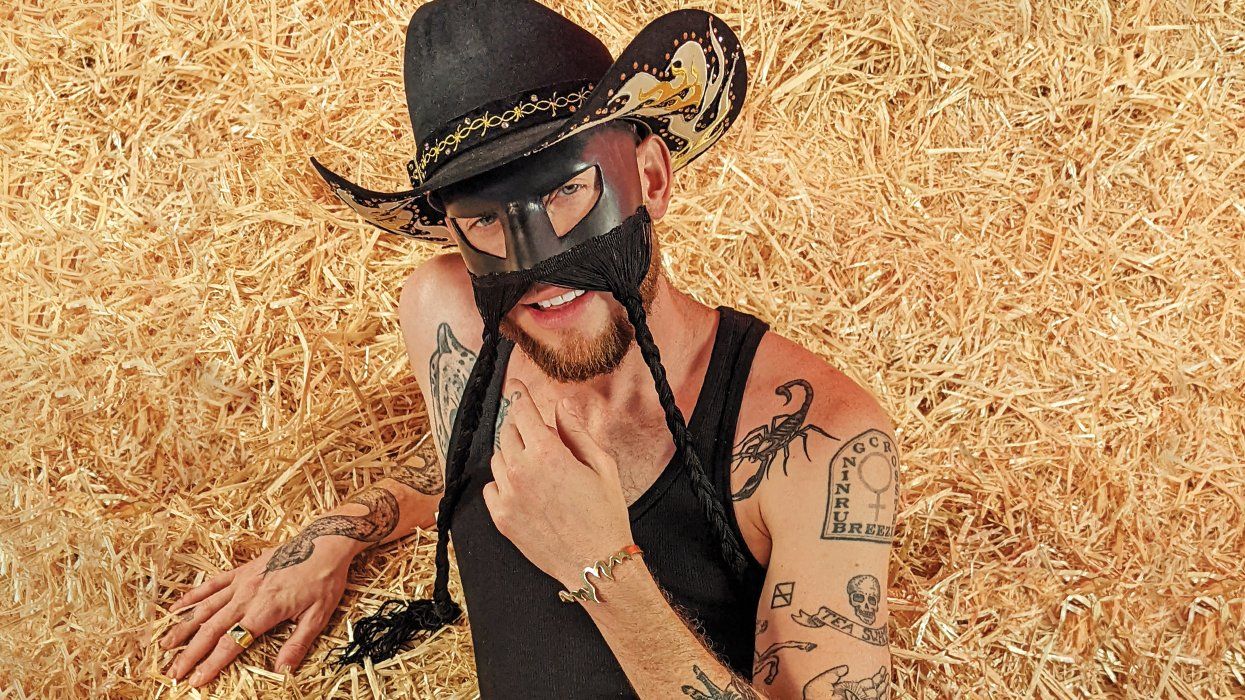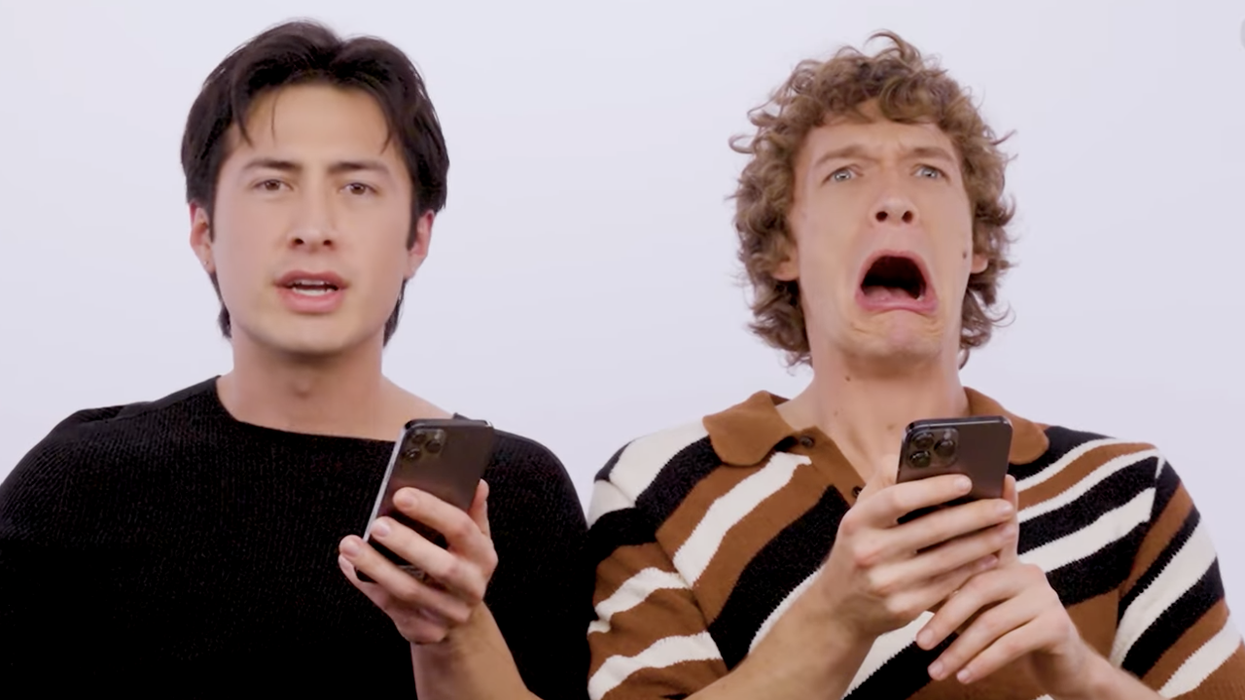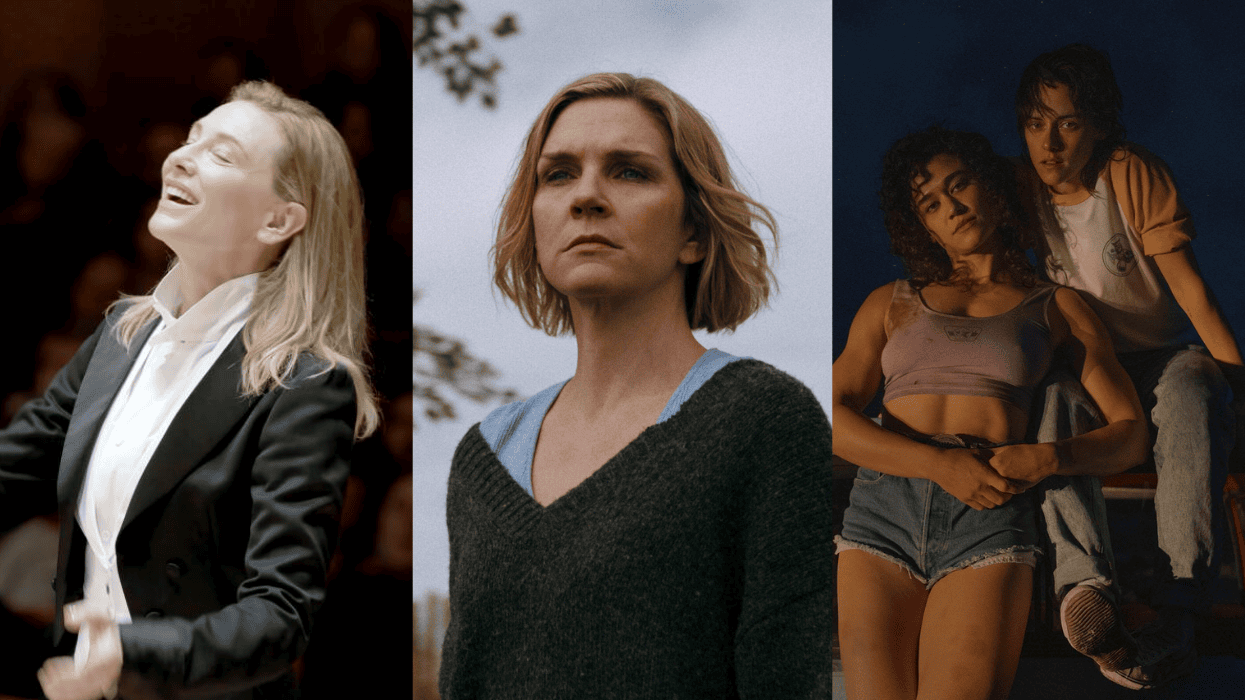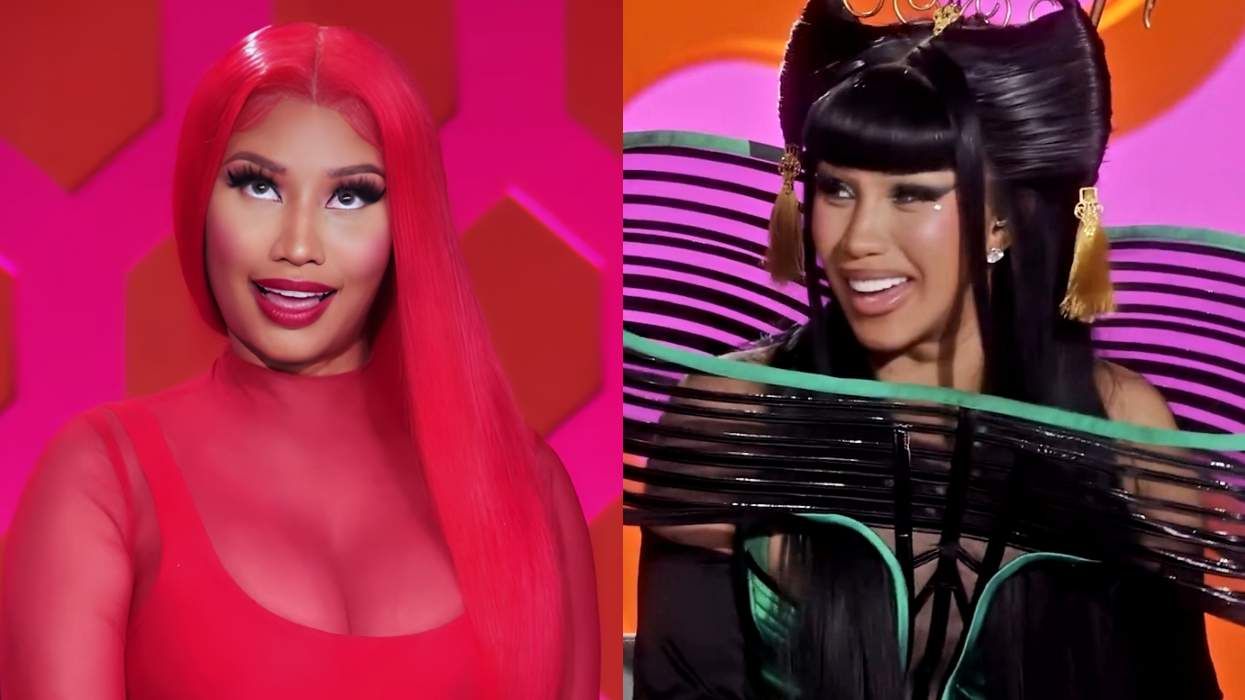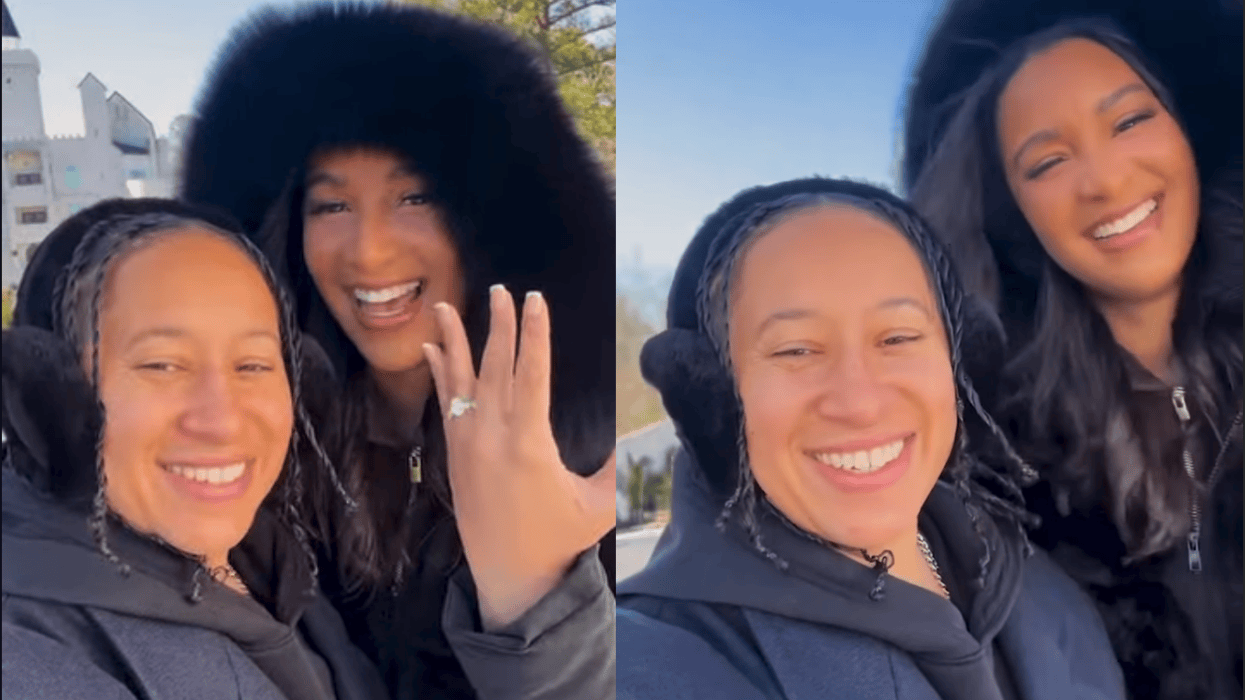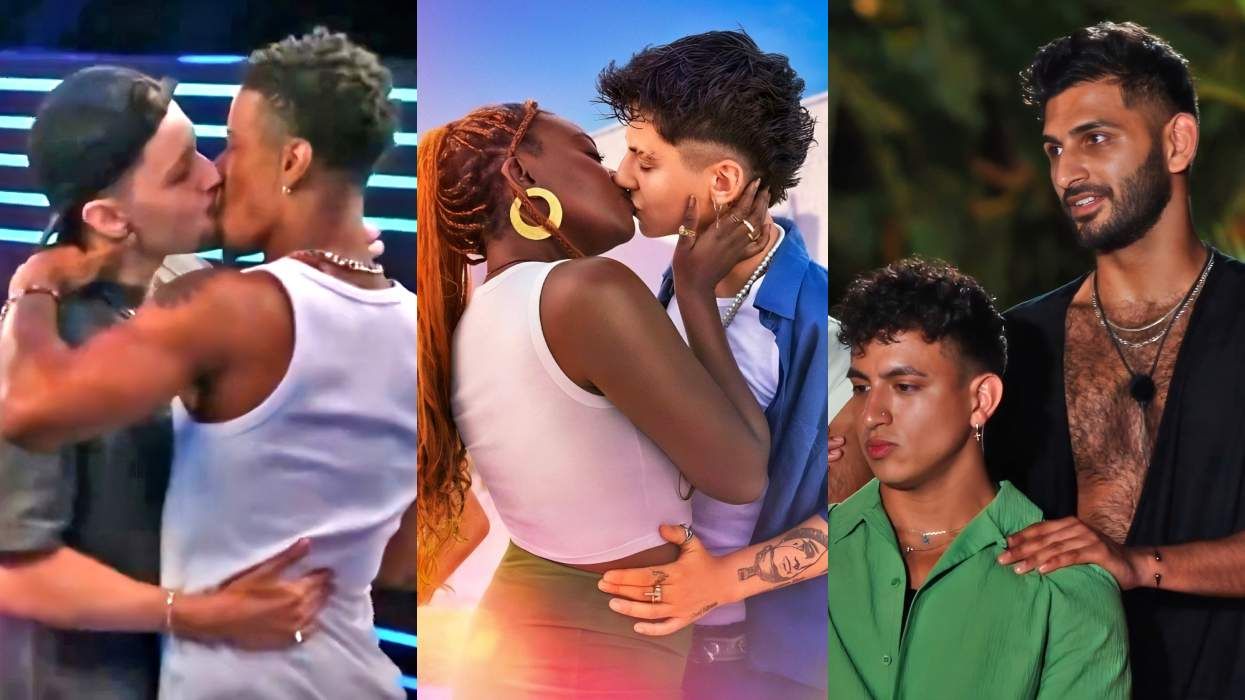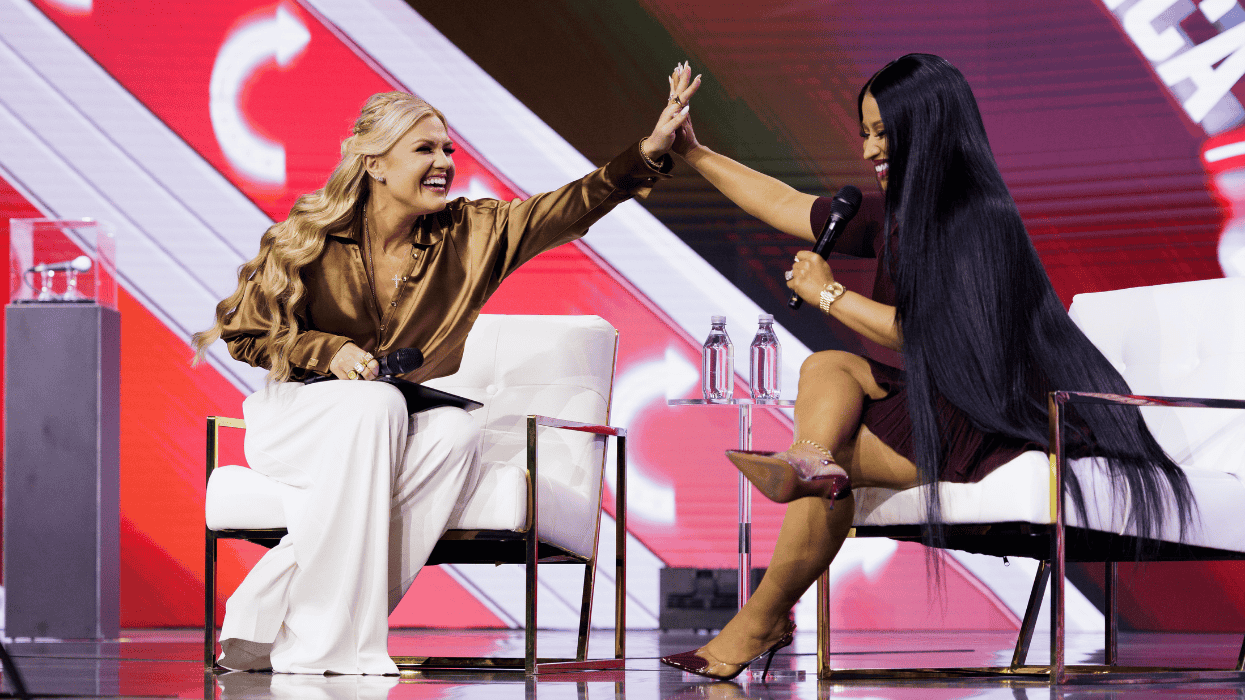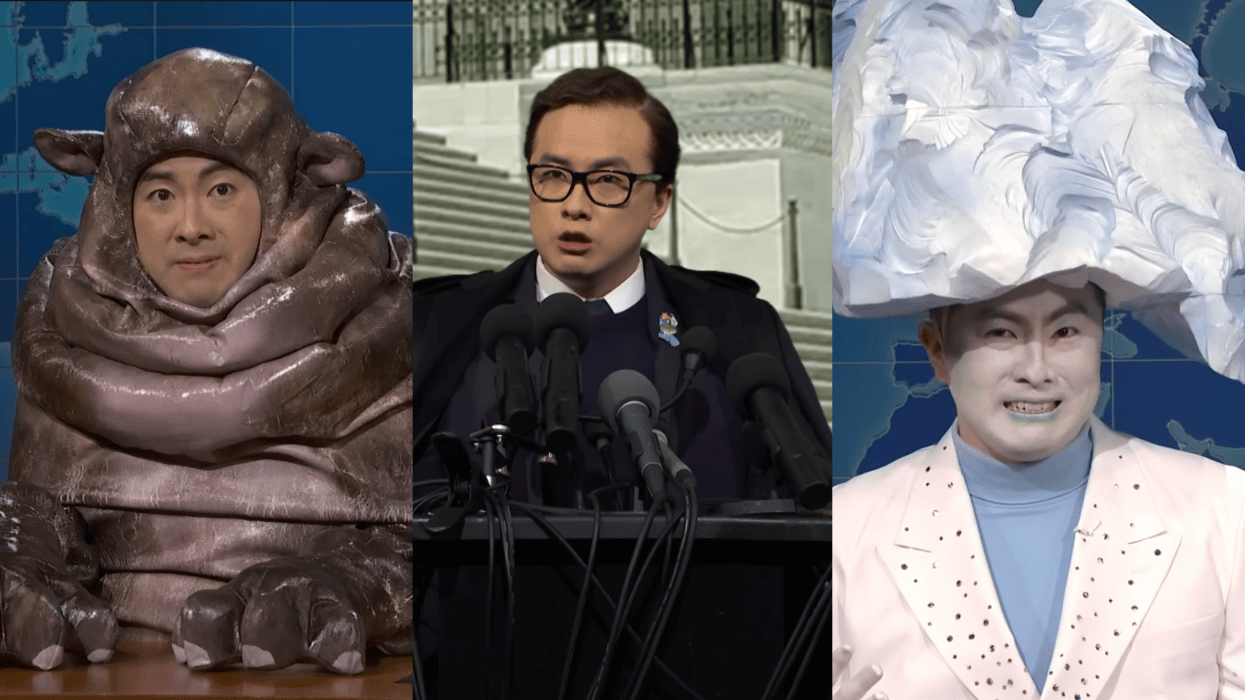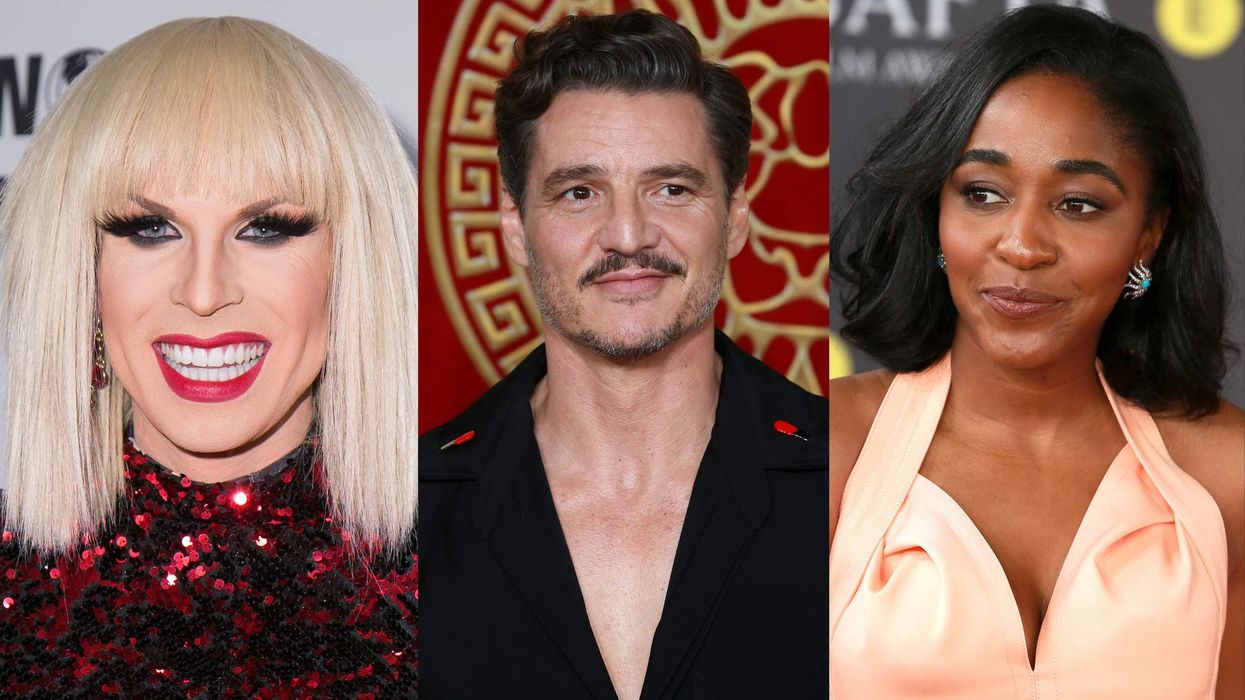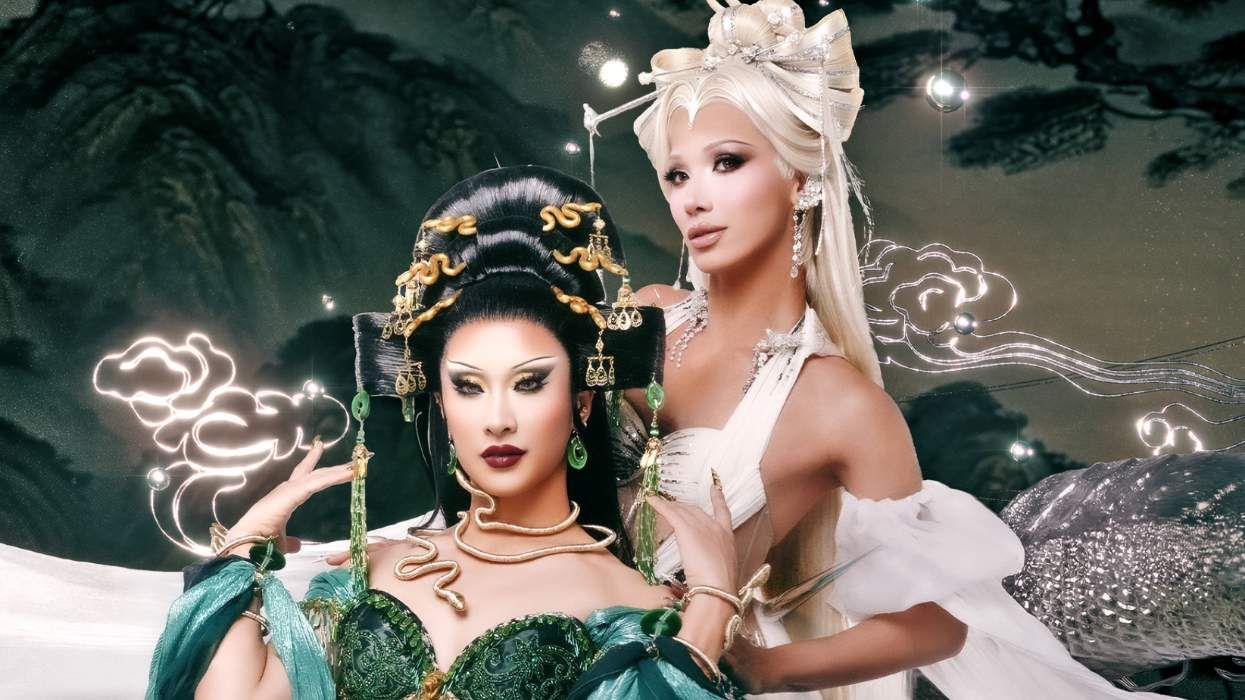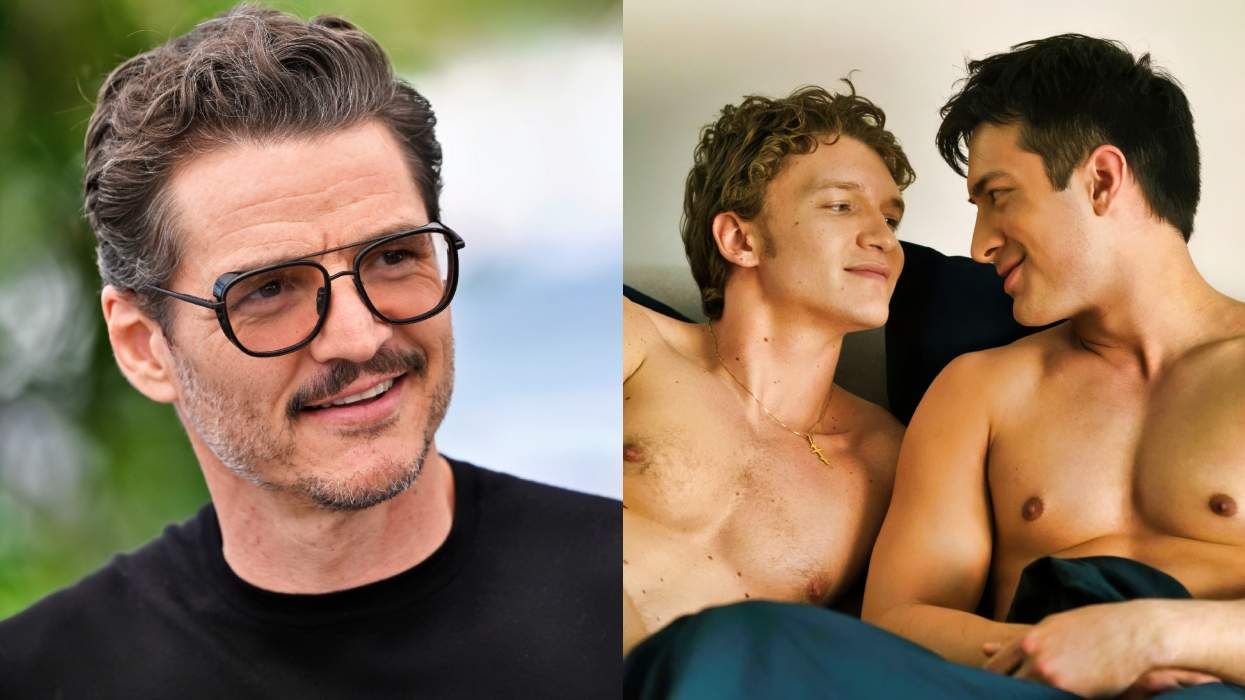Photography by Jill greenberg | Suit by Burberry London. Shirt by Louis Vuitton. Tie by Calvin Klein.
On a recent morning, George Takei and his husband, Brad, cram into the tiny office of a production company in Midtown Manhattan with a Broadway producer, a director, a makeup man, a script writer, a reporter, and two interns. Through the window, a torrent of yellow cabs can be seen barreling down Seventh Avenue through the dirty haze of a hellishly warm July morning. The Takeis, wearing matching black-and-gray New Balance sneakers, are exhausted. They arrived home late the previous night from a grueling stretch of press events and haven't read today's scripts.
"You be you, Brad," says the tan, young director several cuts into the short YouTube promo for their new documentary, To Be Takei.
They're seated in front of a green screen, and Brad's acting plays too much to the camera. "It's hard to be me," says Brad. "You have no idea how hard it is."
"Can we get rid of the word 'friends' here?" George asks. "I wouldn't say that."
Brad is exasperated. "Just try to do a read-through without stumbling," he says to George.
To Be Takei, which premiered at Sundance this year, introduced Brad to the Takei brand. The couple's constant bickering was a hit on-screen, both hilarious and endearing. Now the two are launching a YouTube series, It Takeis Two, which is slated to debut later this year.
At some point during the shoot, an amateur video titled "Portland Parking Fail" gets posted to Takei's Facebook page. It shows a random motorist's lumbering attempt to parallel-park her sedan into a spot large enough for a jumbo jet. In a short time, the video receives 137,000 likes and 36,000 shares. Shortly after, another post -- a cartoon depicting an imagined argument between an e-reader and a hardcover book (the book prevails) -- gets 65,000 likes and 59,000 shares.
In recent years, Takei, the 77-year-old actor who played Mr. Sulu in the original Star Trek series, has exploded into one of the most popular personalities on the Internet. Since joining Facebook in 2011, he's seen his audience grow to 7.2 million followers (as of press time), with an additional 1.25 million on Twitter, many from a much younger generation that knows Takei only as the Internet's go-to avatar for Grumpy Cat memes and other viral tomfoolery.
"With the social media, I initially wanted to raise the awareness in the general American public about the internment [of Japanese Americans], which has been my life mission. Through trial and error, I discovered that humor was a thing that got the most likes and shares," Takei says in his lingering basso profundo, pronouncing the word "humor" with no discernible h. "My fans are my writing staff -- they send me the memes. We're just resharing. Grumpy Cat started three or four years ago, and I've been sharing ever since."
The internment he refers to is Executive Order 9066, signed by President Franklin D. Roosevelt in 1942 after the Japanese bombing of Pearl Harbor, which ordered all 110,000 Japanese Americans living on the Pacific Coast to be removed from their homes and sent to "relocation centers." At age 5, Takei, a native Angeleno, was sent with his family to Rohwer, Ark., the easternmost of the camps, and later to Tule Lake, Calif., where they remained until 1946 when internment ended.
Decades later, after two chance encounters with Broadway producer Jay Kuo, Takei began collaboration on Allegiance, a musical that Takei calls his legacy project, about Japanese American internment. The musical premiered in San Diego in 2012 to a sold-out audience and is currently awaiting a booking in a theater on Broadway.
"I've been an activist throughout my life because of that experience," George explains over lunch one afternoon at a restaurant on West 57th Street. "As a teenager I was reading history books about the shining ideas of our democracy, but nothing of that related to my childhood experience, which I knew to be grossly, egregiously unjust."
Brad, who is also George's manager, peers up from his iPhone. "There's a resilience in George that most people don't have. He became an actor and that's a career of rejection. You develop a thick skin," he says. "All those years he was in the closet and not openly gay, he was marching for civil rights, with the farmworkers, but he had that one fear: that if he opened up as a gay guy, he would not get any work."
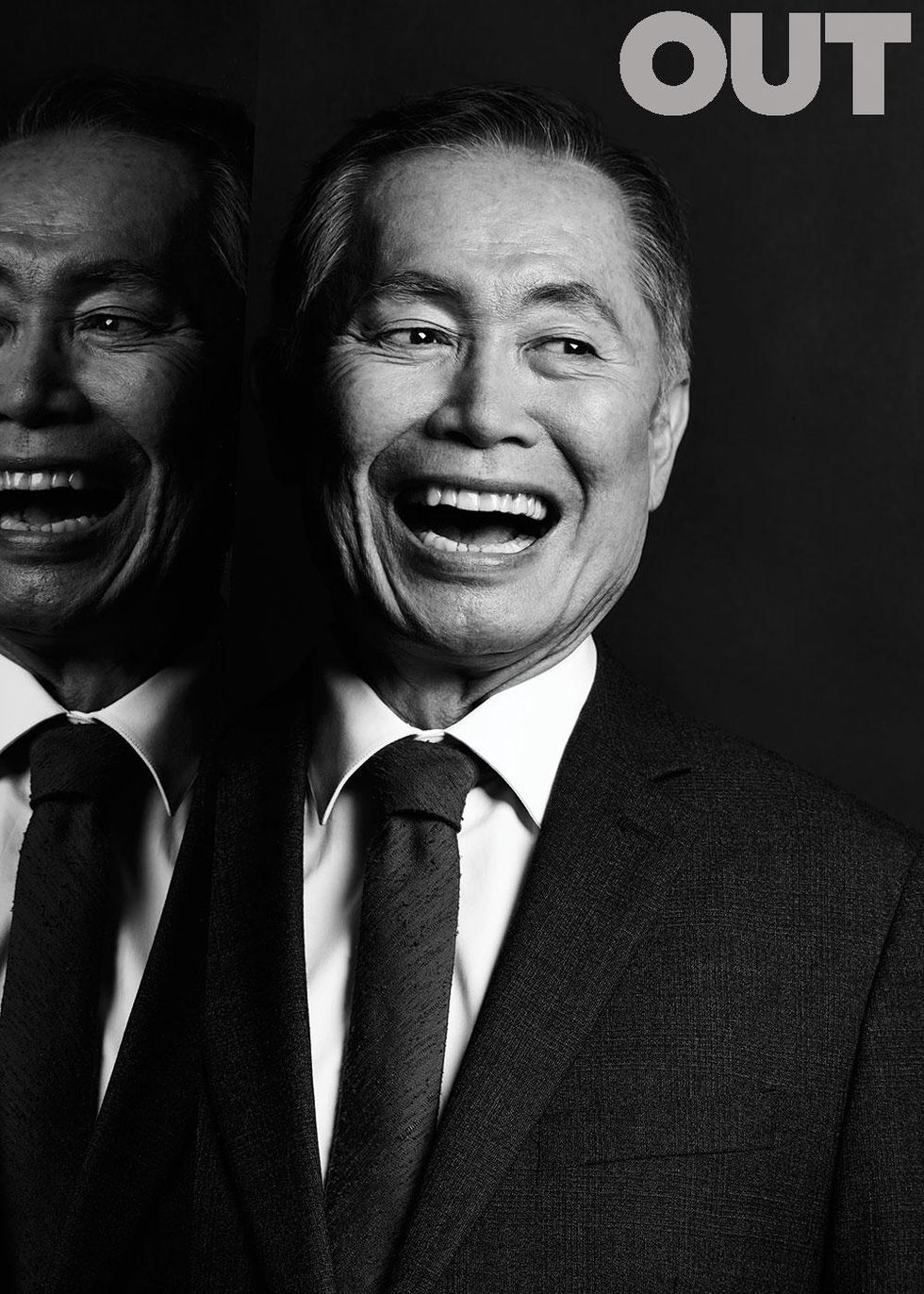
In 2005, after California governor Arnold Schwarzenegger vetoed that state's gay marriage bill, an incensed Takei decided it was time to come out of the closet. In an interview with the Los Angeles-based LGBT magazine Frontiers, he told a reporter, "You know, it's not really coming out, which suggests opening a door and stepping through. It's more like a long, long walk through what began as a narrow corridor that starts to widen."
Even then the climate for coming out gay in Hollywood could be mocking and hostile. Takei's revelation made a splash in entertainment media, accompanied by big headlines and ick-factor undertones alluding to his age, then 68, and his iconic status in an empire of nerdom.
Yet it was Howard Stern, the radio shock jock, who thrust the newly out Takei into the hearts and living rooms of Middle America and set the course for the Takei brand that today reaches millions of people globally. George continues to be a semiregular on the show.
"Howard is perceived as radical, and some people thought he was homophobic, but he's the one who gave me access to that broad, decent, fair-minded middle who don't think about other issues because they're eking out a living. They're blue-collar people -- they're surviving," Takei says.
Immediately following Takei's appearance on the show, Stern jumped on the marriage equality cause, announcing on air that he and longtime girlfriend Beth Ostrosky would not wed until George and Brad were able to. Stern kept his word. In September 2008, after 21 years together, Brad and George were married, and less than a month later Stern and Ostrosky followed suit.
Takei became a household name for gay rights advocacy, using his gentlemanly Uncle George persona and cheeky, unexpected wit. In 2007, when former NBA all-star Tim Hardaway went on an antigay rant, Takei released a PSA-style video telling the basketball player, "despite your ugly words, we don't hate you. As a matter of fact, we like you. We like you very much. We particularly like your large, powerful legs and your smooth, chocolaty head, glazed in man-sweat."
Star Trek was revolutionary, addressing race in civil rights-era America as a nonissue and rejecting crude stereotypes common in Hollywood at the time. Creator Gene Roddenberry wrote his vision of mankind's utopian future into the show as a pillar of Vulcan philosophy, "infinite diversity in infinite combinations," or "IDIC," as fans would come to know it. Even Dr. Martin Luther King, Jr. was a fan of the show. In episode 65, "Plato's Stepchildren," the American TV audience got its first interracial black-white kiss, between Capt. Kirk and Lt. Uhura, although, according to Takei, the reluctant studio execs permitted the kiss only if it was written into the plot as being forced upon the two characters rather than of their own free will.
After nearly 50 years, more than 50 recurring characters, and with a visible gay fan base, the Star Trek franchise has never featured a prominent gay character. Takei broached the issue early on with Roddenberry, in the 1960s, during a pool party at Roddenberry's home.
"Gene said, 'I'm walking a very tight rope with this show. The LGBT issue could push the show over the cliff. I want to do that. I want to push the envelope as much as I can, but there are certain issues that could keep me from ever addressing other issues,' " Takei recalls as we sit in his sleek living room in a Midtown high-rise, a model of the USS Enterprise next to him atop a curio cabinet. "They're very sophisticated, cool people. They didn't tattle on me because they knew that it would be destructive to my career," he says of the original cast. "On Friday nights you had wrap parties, and the beers were rolled out and the pizzas ordered in, and people brought their husbands or wives or boyfriends or girlfriends. I happened to bring buddies over, quite consistently, some more than once. [The cast would say] 'Oh, George, OK,' " he mimics in a salacious tone. "They were very cool about it, but they knew."
He remembers one morning staggering out from makeup and sipping coffee with Walter Koenig, who played Chekov in Star Trek, before heading into wardrobe. "Walter starts making this gesture, urging me to turn around, and I turn around and the extras were gathering, and there was this drop-dead gorgeous guy with the tight Starfleet uniform, great pectorals, and a chiseled face. My heart stopped. And then I turned around to look at Walter, and Walter [smiled]. He was helping me out, showing me this sensational, singular visual treat," George says.
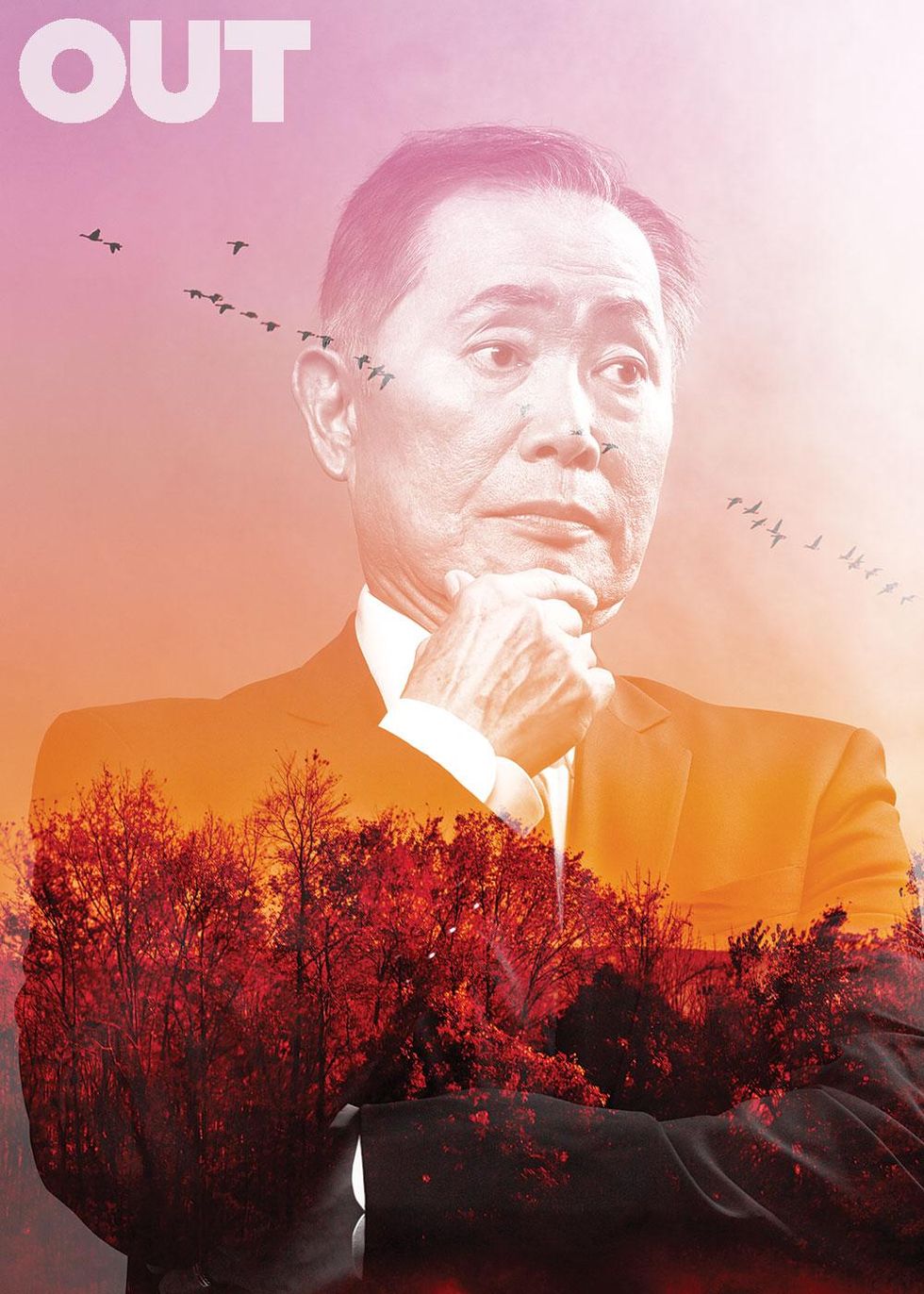
"It only went over the head of one of them," George says, referring to William Shatner (Capt. James T. Kirk), with whom George has had a contentious relationship since the days of the television series. Most recently, Shatner accused George and Brad of not inviting him to their wedding. George paints Shatner as a professional diva, and at the 2006 Comedy Central roast of Shatner, he made a not-so-subtle dig at his co-star's inability to pronounce his name correctly: "Good evening, Bill. My name is George Takei, not Tak-EYE as you've insisted on pronouncing it for the last 40 years. Remember, Takei, like in 'toupee.' " He followed up with one bawdy gay sex joke after another (to a noticeably squeamish Shatner), before concluding, "I can finally say what I've waited 40 years to say: Fuck you and the horse you rode in on."
In 1969, after only three seasons and consistently low ratings, Star Trek was canceled. That same year, suddenly unemployed, Takei found himself at a professional and personal crossroads. On the other side of the country, the Stonewall riots heralded the dawn of the gay liberation movement. Word spread about the riots through every gay bar and bathhouse in the nation.
"Activism has been with me throughout my life, but on the one issue that was the most organic to me, I was silent throughout," he says. He witnessed what happened to many Hollywood actors who were outed: They rarely worked again. "I had to get another job. So that was my dilemma. That year, that seminal event happened, and I had no way of making a living."
George and Brad are perhaps the most astonished of anyone by the breadth of their online audience. That morning at the production studio, I share with them an anecdote, how my 15-year-old stepsister, who lives in a farming town in Iowa, and my 64-year-old Republican second cousin in Tennessee both repost George's updates on my Facebook feed. Brad's and George's faces sparkle. Brad shakes his head: "See?"
Andrew Forrest is the director of audience development at Upworthy, where Takei is a guest curator. He says the popular viral content site and Takei share a common mission of social justice, particularly where LGBT rights are concerned.
"It's clear George's page is not being run by some agency. It really feels like he is developing a relationship with his audience and community. He calls himself Uncle George, and his community really responds to that," he says.
For a random comparison, Forrest points to Jennifer Lawrence's page, with 8.7 million "likes" (as of press time).
"Her last post was December 12, 2013. And it's pretty much exclusively photos of her. I think this is the case for most celebrities on Facebook. They're trying to figure out what to do with it. Celebrities tend to open up more on Twitter," he says. "George is posting consistently and it's authentic and funny, and that's what people respond to on social media. That's a recipe for success where George has been a superstar and others haven't."
Nearly a third of Takei's online followers reside outside the United States. After my final hours with them, the Takeis are bound for London to work on an undisclosed television project. They've also just come off a U.S. State Department-sponsored tour of South Korea and Japan in which Takei's usual speaking format about the Asian American diaspora took a hard turn toward LGBT rights in two very socially conservative countries. At the reception hosted by Ambassador Caroline Kennedy in Tokyo, Takei recalls Akie Abe, Japan's first lady, proudly telling him that two weeks before she had participated in what she called Tokyo's "rainbow pride parade."
"I think that's the reason why Ambassador Kennedy invited her," Takei says.
We're driving down Manhattan's Fifth Avenue en route to a photo shoot in Chelsea, and George is remembering the first time he saw Brad, in a gay running club in Los Angeles in the 1980s.
"The glistening perspiration, the huffing and puffing, jogging around the reservoir in Silver Lake. That's how I met him -- sweaty," he says.
"When we transitioned into that more meaningful commitment, we were already best friends," Brad says from the front seat.
"And then it was sheer lust," George says.
"Why don't you keep some of that stuff private?" Brad says. George laughs. "Life is strange. It's timing and dumb luck."
Fashion Editor: Michael Cook. Groomer: Angela DiCarlo. Bunny Model: Mochi.


